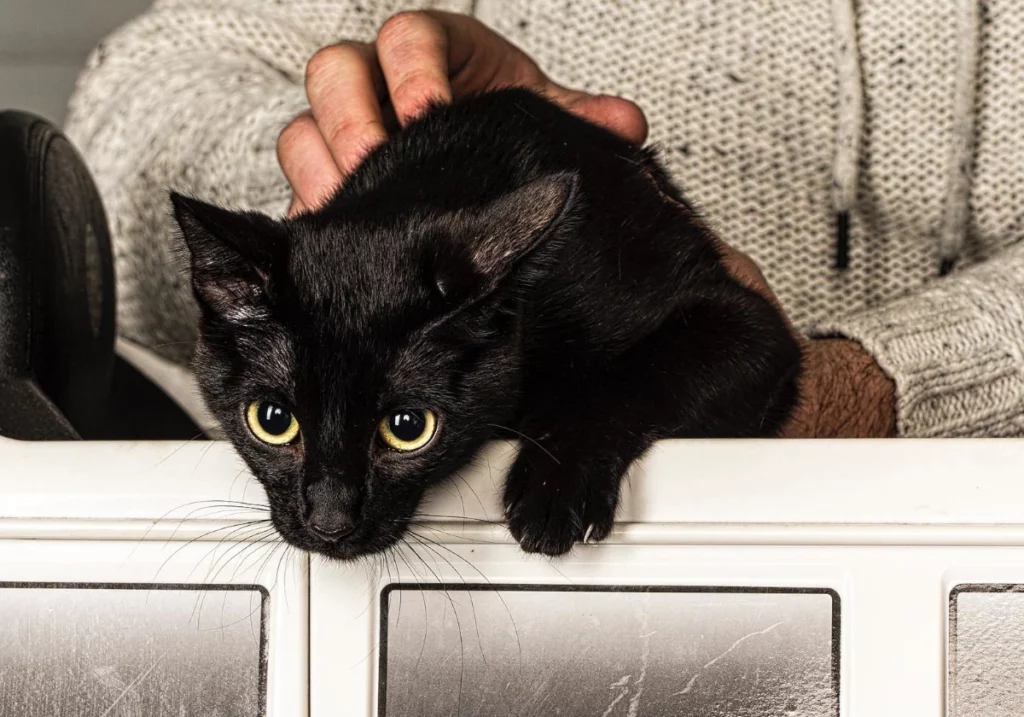They say that dogs are man’s best friends, but don’t overlook the vast array of furry, flippered or feathered friends which are just as capable as companions just yet. There are many reasons why pets as companions may be a good idea for you: maybe you’re suffering from empty nest syndrome – don’t worry, it gets us all eventually! – or maybe you want to get active but need a bit of company to take those tough first steps.
Whatever your circumstances, living with pets can have a positive effect on both your physical and mental health! So, without further ado, here’s a quick guide to pets and the benefits they can have on your life.
Pets as companions: The physical benefits
So how can pets can help with my physical health, I hear you ask. Well, we’re not saying that your newly adopted dog will turn into a doctor overnight, but it can help you to exercise in ways you usually wouldn’t. Aside from the obvious dog-walking, stretching, and bending to handle pets helps to keep your muscles and joints limber without feeling as strenuous as say yoga or aerobics.
Another way that your cuddly companions will keep you active is through play; you may not notice it, but throwing your dog, cat or bird’s favourite toy is an effective way of exercising your moving your body without a workout. Once you are ready to take those first steps into a more active lifestyle, these kinds of passive activities will make it a lot easier on your body.

Love vs loneliness: How pets can help your mental health
Where living with pets really shines though, is in the benefits it can have on our mental health. Loneliness is a cruel mistress, and one which is familiar to many older adults – especially throughout the COVID-19 pandemic. On the flipside, having other people too close in and about your private life can be equally frustrating. In this regard, pets offer the best of both worlds; they are loving companions and, while they may take the occasional bite out of your slippers, these cuddly creatures won’t eat into the solitude and privacy that a lot of us enjoy every now and again.
On top of this, as we get older, memory, motivation and direction can sometimes fall by the wayside. Not to worry, though, having a pet around can help to give structure to your daily life and is believed to drastically improve mood, awareness, and cognitive ability.
Another reason getting yourself a pet may be a good idea, is that they are believed to stimulate the release of Oxytocin – A.K.A the ‘love hormone’ – and can be a godsend for those suffering from anxiety or other similar mental illnesses. As well as this, studies undertaken by John Hopkins University suggest that petting animals can lower the levels of Cortisol, which is responsible for stress, in the body. So, what does this mean in perspective?
These lower levels of Cortisol and boosts of Oxytocin can help to lower blood pressure, improve heart health, and promote relaxation. Beyond the science, pets’ effects on these hormones can help us develop genuine bonds with our furry friends which is something which can drastically improve our quality of life as we get older.

Choosing your ideal pet companion: The best low maintenance choices
So, with such a wealth of choice at your fingertips, which pet is best for you? Every animal and breed has its own pros and cons, but the most important thing to consider is that these are living creatures too. For that reason, we should be realistic about what kind of pet fits our lifestyle, mobility, and the kind of space we have available for it to live in. There’s no problem with tapering your expectations to suit that. Here, then, are a few good low-maintenance choices:
Therapy dogs and smaller breeds
Out of the gates first are some of the most popular dog breeds around; Corgis, Spaniels and Terriers are perfect for owners who may not be able to cater to the exercise needs of bigger dogs, while Labradors and Golden Retriever are among some of the easiest-going and emotionally attuned breeds around. These dogs are perfect for stress-free companionship and are exceptionally affectionate.
Shorthair cats
British and American Shorthairs are renowned for being some of the most independent and hassle-free felines you’re likely to find. With calm temperaments and a tendency to lounge or entertain themselves, these breeds are perfect for older owners. Oh, and they are notoriously hardy animals, so vet fees are not often an issue!
Maine Coons
Sticking with cats, we have the gentle giants of the domestic breeds, Maine Coons. For those who would like a larger pet, without the hassle of daily walks and other responsibilities, the Maine Coon fits the bill to a tee. Known to enjoy lead-walks, but by no means expecting of them on a day-to-day basis, these guys are like the happy medium between lynxes and domestic dogs but are just as friendly and sociable as any other cat.
Geckos
Stepping away from the mainstream now, Leopard Geckos are the ideal pets for the lizard lovers among you given that they are relatively cheap to look after, have a friendly temperament and are generally low maintenance. Like with fish, turtles and other tank-based pets, reptiles do require a fully kitted vivarium which can be costly, but once that’s out of the way a good diet of meal worms, crickets or veg. will see them happy and healthy year-round.
Fish
These scaly little creatures have developed a reputation for being the boring choice for house pets but, just because you might not be able to take them out to walk or play, that doesn’t mean they’re necessarily a bad choice altogether. In fact, just having an ambient pet like a fish around can help with relaxation, loneliness, and some of the other benefits that other pets boast.
The Betta Fish, for example, is a particularly low maintenance but no less beautiful species which are perfect as pets. These flamboyant, brightly coloured fish need very little other than a single daily feed and a decent clean of their tanks every so often. An easy way to take the leg work out of your Betta fish’s upkeep, however, would be to fit their tank with a heater and filter. It won’t take away the need to keep an eye on them and clean their tank entirely, but for a little extra money, these products will save you having to do them on such a regular basis.
To help us make Britain one million biological years younger take our autum Lifescore calculator to determine your biological age and use our autum app on Android or IOS to help improve your biological age today!
If you found Pets as companions for older people – how they enhance life helpful, you’ll find more tips for healthy living in later life on the autum blog.
Images: Photo by Delaney Dawson on Unsplash, Dog and cat Photo by Madalyn Cox on Unsplash


